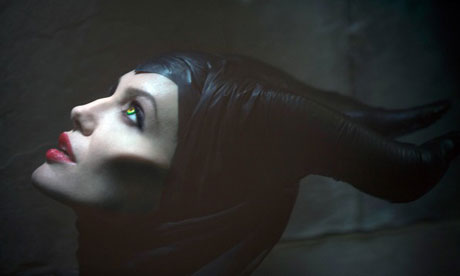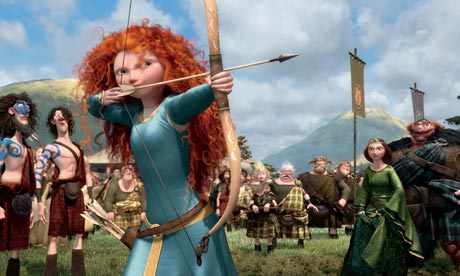Lengthy feature, broken down into shorter themed sections, from
the Gdn Film Blog (if you don't already follow it you should!)
here on what 2013 will bring for the cinema industry: read the article here or (partially reproduced) below.
Care to add your own predictions as a comment? Will the 3D boom continue or tail off? Will home cinema 3D once again undermine cinema? Will streaming overtake DVD sales as a source of revenue? Will the window between exclusive theatrical exhibition and DVD/TV/streaming continue to shrink? Will the US audience continue to shrink as a % of Hollywood revenues for its own films - and if so, will this lead to greater multi-ethnicity in the casting of leads, or a shift away from depicting American power (surely a key tool of US political hegemony)? Will digitisation open up greater opportunities for Indie producers ... or will the tentpole strategy (closely tied to franchising sequels, prequels and remakes/reimaginings) continue to maintain big 6 global dominance? Will YOU go to see
any film in the cinema in 2013 - or turn increasingly to viewing film on tablets, laptops etc?
Brits in Spandex and girl power: movie trends that will keep us talking in 2013
Last year, Hollywood was flush with international cash and films starring Matthew McConaughey. What will this year hold?
 |
Angelina Jolie as
Maleficent represents the latest trend for Actresses of a Certain Age
Who Aren't Really That Old: playing the bitch. Photograph: Disney
|
Time travel was popular. Prequels were hot. As were
guns-for-hire, vampires and movies set on boats. Which of the year's
cinematic trends, people, cultural avatars and epiphenomenon are most
likely to set the agenda for 2013?
Jennifer Lawrence
In
X-Men First-Class, Jennifer Lawrence wore the lightly stunned look of
someone suffering from an acute case of Newcomer Bends. But then she
narrowed her eyes, strung her bow and fired The Hunger Games towards
$686m: Lawrence's imperturbability was revealed as the genuine article.
The scene in Silver Linings Playbook where she walks into de Niro's lair
and has him eating out of her hand in under five minutes may just win
her an Oscar at the tender age of 22. If that weren't reason enough for
New York magazine to put her at the top her their "Celebrity Brunch
League" – the lost of famous people they'd most like to have pancakes
with – the editors listed a few more:
She
complains about her fussy premiere clothes; she crashes into cars while
looking for Honey Boo Boo. There was that time that her entire family
went to Sleep No More in search of orgies … Jennifer Lawrence cannot be
contained by your Movie Star Rules of Decorum; Jennifer Lawrence has too
much to share.
We concur. She's like Liz Taylor without the alimony.
Girls
Jennifer
Lawrence wasn't the only ballsy princess of 2012. We also had the
flame-haired, cinch-waisted Princess Merida in Pixar's Brave, the
studio's first female protagonist; plus Kristin Stewart riding,
fighting, and shooting her way through Snow White and the Huntsman, not
to mention her swan song for beloved Bella, now a momma grizzly
protecting her vampire cub in the last
Twilight movie. They all added up to "an interesting new breed of warrior princesses,"
said the New York Times' AO Scott, "whose ascendance reflects the convergence of commercial calculations and cultural longings."
Much
of the credit must go to Lionsgate, who released both Breaking Dawn
Part 2 and The Hunger Games, thus proving conclusively that young female
actresses can 'open' and power a movie move way past the $100 million
mark. "Girls actually need superheroes much more than boys,"
said Gloria Steinem, approvingly. Boys aren't the
only ones to play Han Solo.
 Princess Merida – and her bow and arrow – were big hits in 2012. Photograph: Pixar
Princess Merida – and her bow and arrow – were big hits in 2012. Photograph: Pixar



